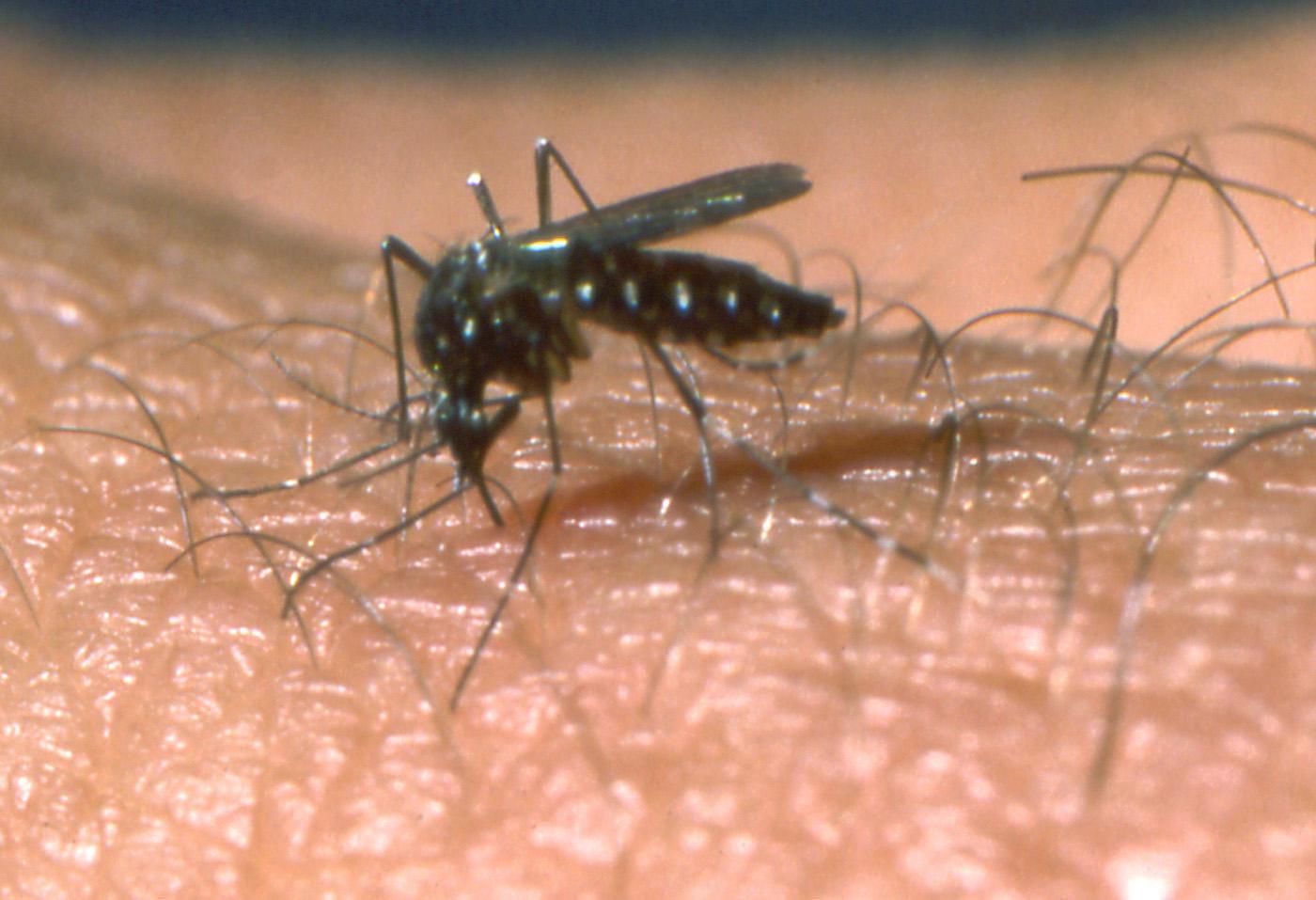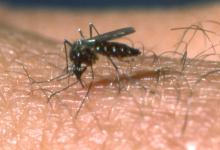Information Possibly Outdated
The information presented on this page was originally released on October 2, 2008. It may not be outdated, but please search our site for more current information. If you plan to quote or reference this information in a publication, please check with the Extension specialist or author before proceeding.
Mosquito bite gives woman West Nile virus paralysis
MISSISSIPPI STATE -- A physically active Greenwood woman is working from a wheelchair today rather than on horseback a year into her battle with West Nile virus that left her with polio-like symptoms and partial paralysis.
Leann Hines contracted the virus in August 2007 and came down with West Nile virus polio syndrome, which caused asymmetrical paralysis.
“I was almost totally paralyzed,” Hines said. “If not for a really good neurologist in Jackson, I probably would not have survived.”
Before she was bitten by the virus-carrying mosquito, Hines, then 51, was a nurse in Greenwood and worked on her family's farm training horses and giving riding lessons. One day she went home from work a little early because she felt bad and her knees felt weak. The next day she did not go to work and had a temperature of 103 degrees.
She spent the next day in the emergency room. Tests determined she had a virus, and she was referred to a neurologist because her right leg was not working properly.
“That night they sent me home with a walker and I dragged myself home. I couldn't move by the next day,” she said.
Her first symptoms appeared on a Tuesday and by that Friday, she was paralyzed and in intensive care. Thirteen weeks later, she was barely able to sit up. A year later, one leg is still paralyzed.
“My arm strength is good now, and my nerves are coming back. It just takes a long time,” Hines said. “The doctor said it's a miracle that I'm doing as well as I am, and it might take another year before I can actually walk.”
Hines' Leflore County neighborhood had three cases of West Nile virus last year, and in 2002 she had to euthanize a horse that contracted the disease. Today, she avoids being outdoors at dawn and dusk when mosquitoes feed, and she uses a product that contains DEET when she does go outside.
“My story is scary, but the good part is I am getting better,” Hines said.
As of Sept. 15, the Mississippi Department of Health reported 108 human cases of West Nile virus in the state this year, with four of them resulting in death. Last year, there were 57 human West Nile cases at this same time. These cases are scattered, although the central and southern parts of the state have the majority of affected counties.
Blake Layton, an entomologist with the Mississippi State University Extension Service, said there are about 60 species of mosquitoes living in Mississippi, but the most important one is the Southern house mosquito.
“This is the mosquito most commonly involved in transmitting West Nile virus,” Layton said. “The Southern House mosquito breeds in standing water where it lays its eggs in small ‘rafts' on the surface of the water. The larvae feed on organic matter drifting in the water. Adults leave the water and rest in vegetation around buildings or other areas.”
The mosquito eggs hatch in a few days, spend a week to 10 days in the larval and papal stages, then live as adults for a few weeks.
“One important point about the Southern House mosquito is that they do not fly far,” Layton said. “The ones that bite us come from our yards and those of our neighbors, not from the swamp half a mile down the road.”
Since mosquitoes must have water to breed, homeowners can disrupt the life cycle by not allowing water to stand on their property.
“Anything that can hold water for three to four days can breed mosquitoes. ‘Dump it, drain it or fill it' is the best defense against mosquitoes,” Layton said.
Although West Nile virus is a real and dangerous threat to Mississippians, mosquitoes can transmit other serious but much less common tropical diseases such as malaria, yellow fever, filariasis and dengue. In addition to West Nile virus, mosquitoes can carry other viral diseases such as St. Louis encephalitis, Eastern equine encephalitis and Lacross encephalitis. Mosquitoes also transmit heart worms and several other disease that affect animals.
While Hines endures her slow recovery from West Nile virus, she is getting some assistance from the Mississippi AgrAbility Project through the MSU Extension Service. AgrAbility is an organization that draws together whatever resources are available to help people with disabilities and their families maintain their farming lifestyle.
Herb Willcutt, an Extension Service agricultural engineer, has been working with Hines to develop ways for her to resume her on-farm activities.
“She still plans to provide riding instructions and wants to be able to mow pastures and work with a front loader on a small tractor,” Willcutt said. “We discussed building a portable wheelchair ramp that will allow her to transfer from a power scooter to the cab of the tractor, and to allow her to mount a horse with assistance.”
AgrAbility engineers are looking at modifications needed to the door of the tractor and are considering a wheelchair lift instead of a ramp.
“Our goal with AgrAbility is to bridge the gap between people with disabilities in the agricultural sector and their vocational rehabilitation needs,” Willcutt said. “Often assistive technology is not commercially available or must be modified to suit the needs of the clients. AgrAbility advises clients and vocational rehabilitation counselors about solutions for the disabled agricultural sector and, as necessary, may design or construct solutions. This moves those people toward independence and restored productivity in society.”




